Bright Sun Family Day Care director Amsha Nahid can vividly recall when she first encountered Be You.
“It was at the 2019 Family Day Care Australia conference,” she says.
“I remember because at the time I was really concerned about my own health and wellbeing due to my stress levels.”
Around the same time, Be You was discovered by Mariam Shahid, the service’s educational leader. Combined, something clicked for the Bright Sun team and they’ve been doing Be You “their way” ever since.
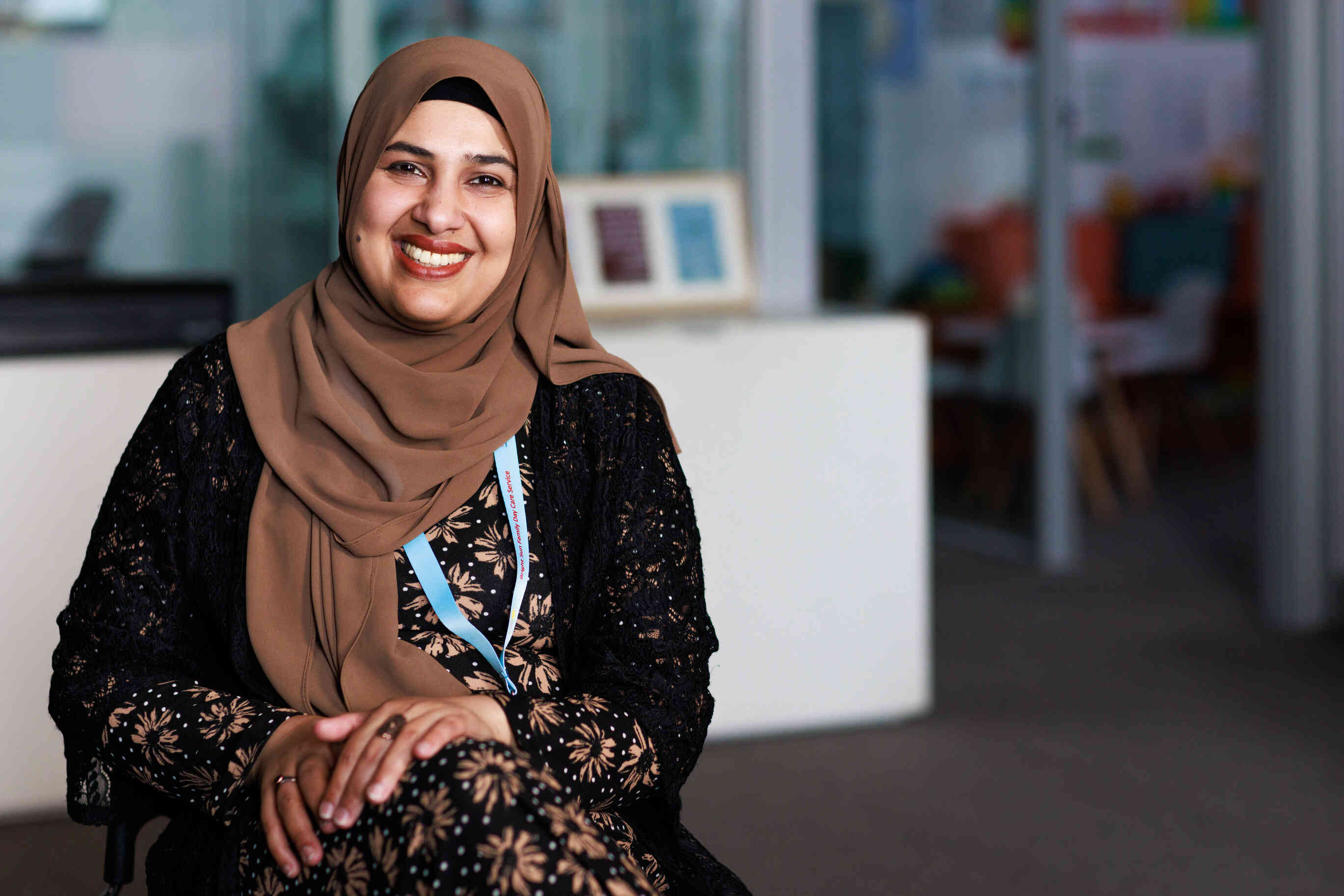
Bright Sun Educational Leader Mariam Shahid.
Using Be You to create change for good
“Our focus is very much on supporting the health and wellbeing of our educators, helping them look for the signs that they might need help and then, eventually, connecting people who may need extra help with professional support,” says Mariam, who is also the Action Team Leader.
“The Fact Sheets and Professional Learning modules have been helpful for us as leaders to get professional knowledge, but for educators, it’s a more informal approach tailoring it to their needs.”
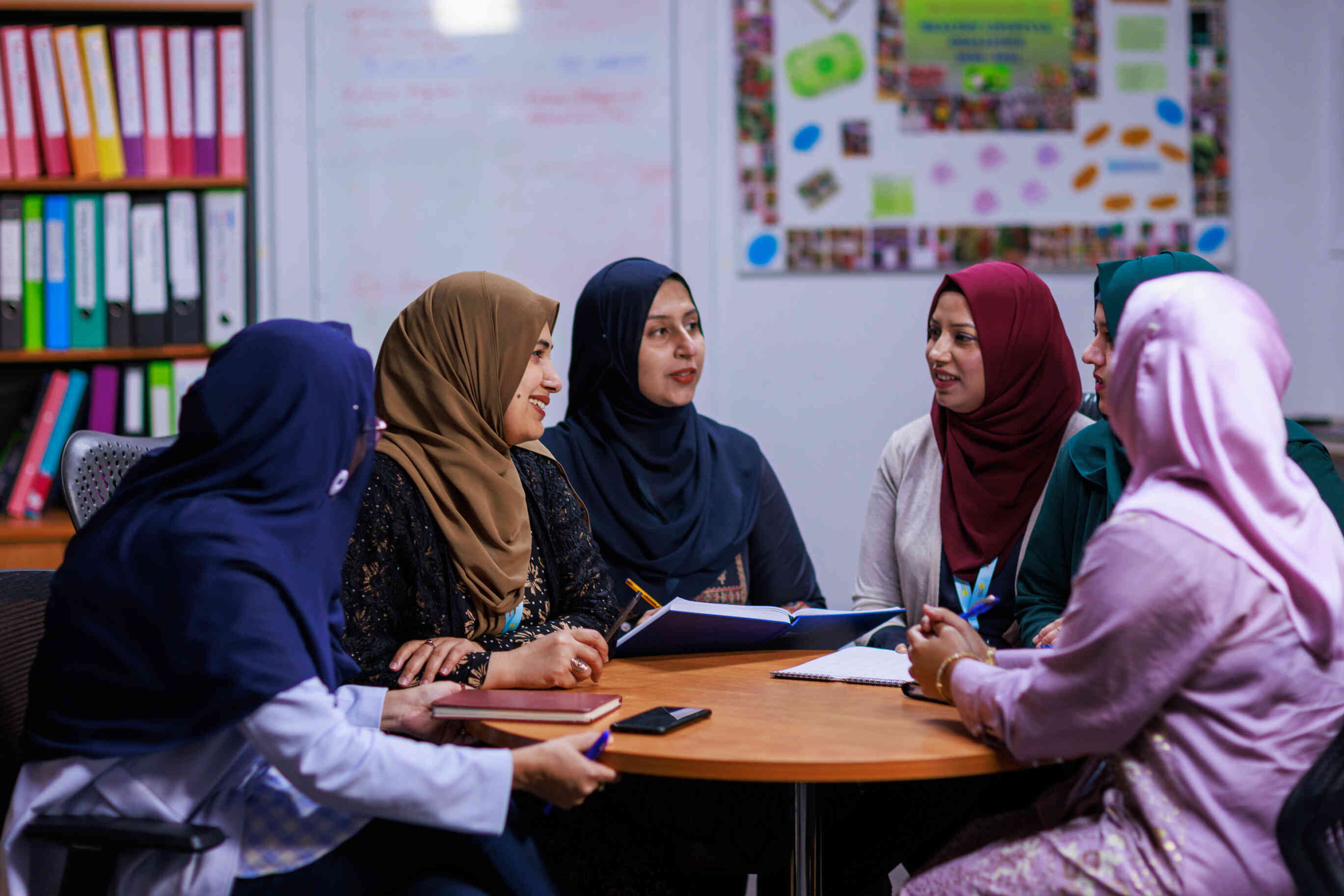
The Coordination team at Bright Sun discuss wellbeing at their daily meeting.
One strategy Be You has helped them realise is creating space for conversations. Maria Heenan, Bright Sun’s Be You Consultant, says that this is both simple and powerful.
“A lot of the things Amsha and Mariam speak about in relation to Be You revolve around the power of conversation,” says Maria.
“And it’s the knowledge from Be You that helps them have those conversations. Knowing how to frame them, what to ask and then what to do in response.”
Mariam agrees.
“We visit our educators regularly and, thanks to Be You, as part of the paperwork involved in those visits, we introduced a new section focused on an educator’s health and wellbeing. ”
“We ask questions about the blessings they’ve felt, how they’ve celebrated happy moments, the challenging moments they’ve experienced and how they overcame those challenges.
“It gives our educators an opportunity to reflect and it also gives us the opportunity to establish a relationship with our educators, so that they feel they can open up.”
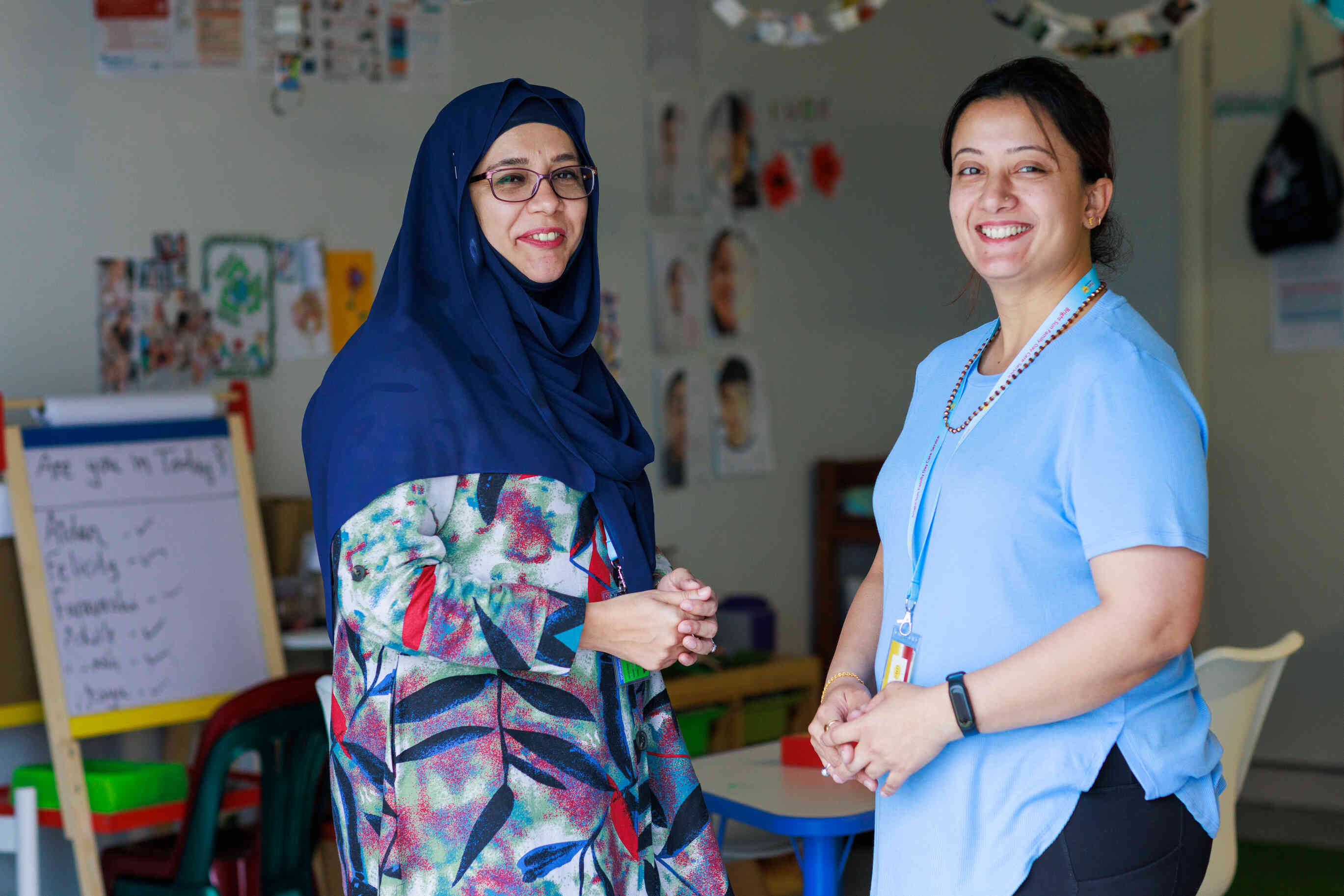
Bright Sun Coordinator Sarwat Shah visits and educator Shreya Patel at her home.
Diversity at Bright Sun
Among Bright Sun Family Day Care’s team of more than 90 educators, there are some who speak five different languages. It’s just one of the things that makes the service so appealing to local families in Melbourne’s richly diverse western suburbs.
“Families have the choice of which educator they like, who can speak the same language. We have Muslim children and educators. Hindu children and educators, as well as Lebanese, Pakistani and Burmese families," continued Amsha.
There are so many different backgrounds, but we’re all from the same culturally and linguistically diverse community.
“We also find that a lot of families prefer family day care because of the timing. We have parents who work nightshifts or who start early in the morning, so while some children arrive at day care at 5am, others stay overnight.”
Bright Sun educator Shreya Patel says being able to offer that flexibility is something she’s particularly passionate about.
"We’re open 24/7, public holidays, every day,” she says.
“I try to keep it really flexible for children and their parents. I’m a single mother so I know how hard it can be to find childcare for your children and manage your work and life. I want to try and make that easier for parents.”
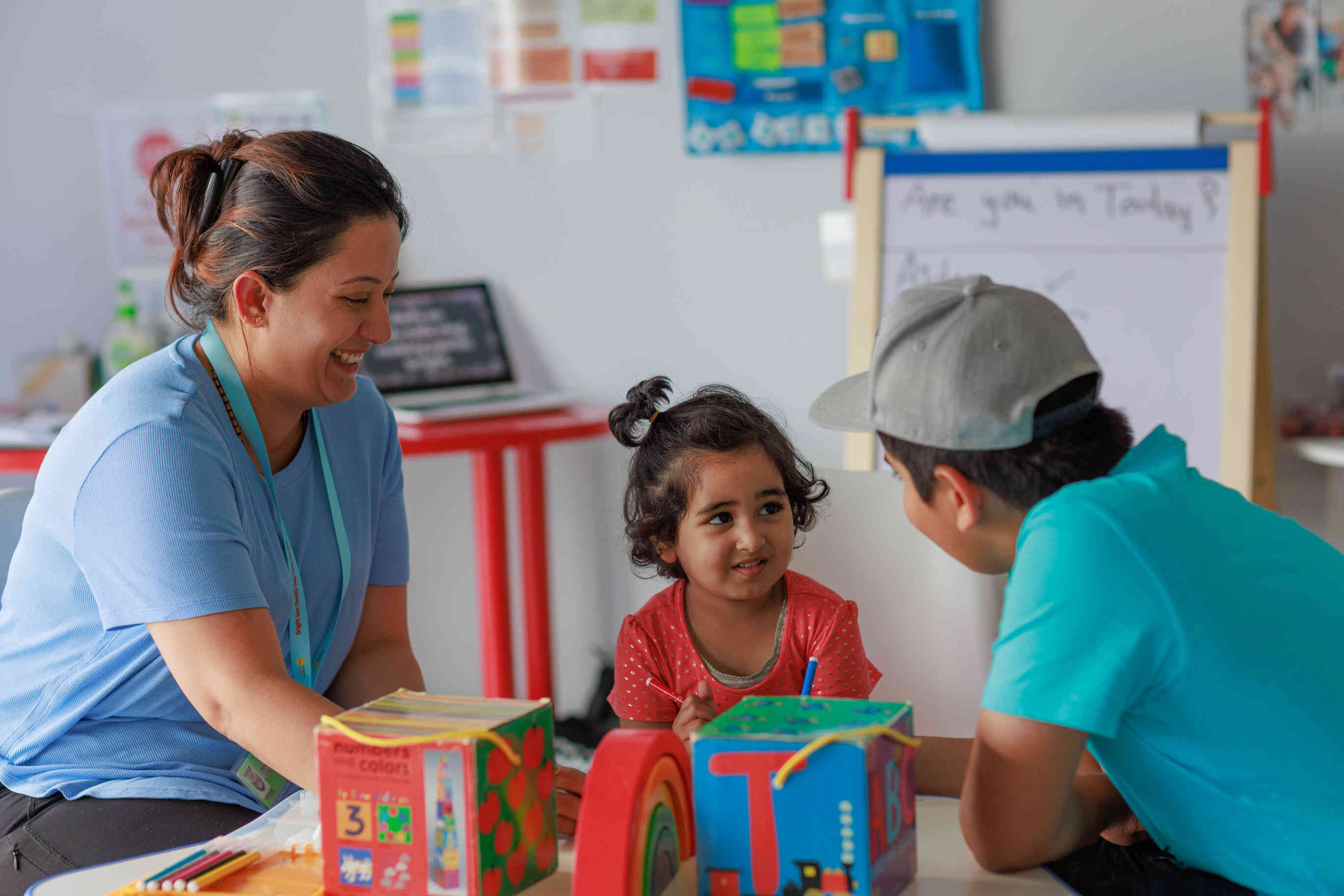
Educator Shreya Patel talks with children at her family day care.
Yet that flexibility can make providing family day care as taxing as it is rewarding for educators. Mariam says the ever-changing routine adds a layer of complexity.
“The other thing in family day care is that educators are independent contractors so they have to multi-task,” she says.
“They have to promote their business, do their tax returns, be their own resource officers and program planners and then, at the same time, they’re using their own homes.
“Somehow they need to find a balance between their professional responsibilities and often their responsibilities as mothers and looking after their own children. It can be a lot of pressure and it also means there’s less time for them to think about what they can do for their own self-care.”
And then there’s the fact that on its own, the notion of self-care can carry stigma in diverse communities.
“ There is often a lack of understanding around the importance of looking after your health and wellbeing in our community. People don’t have the concept that they need to look after themselves first before providing care to others.”
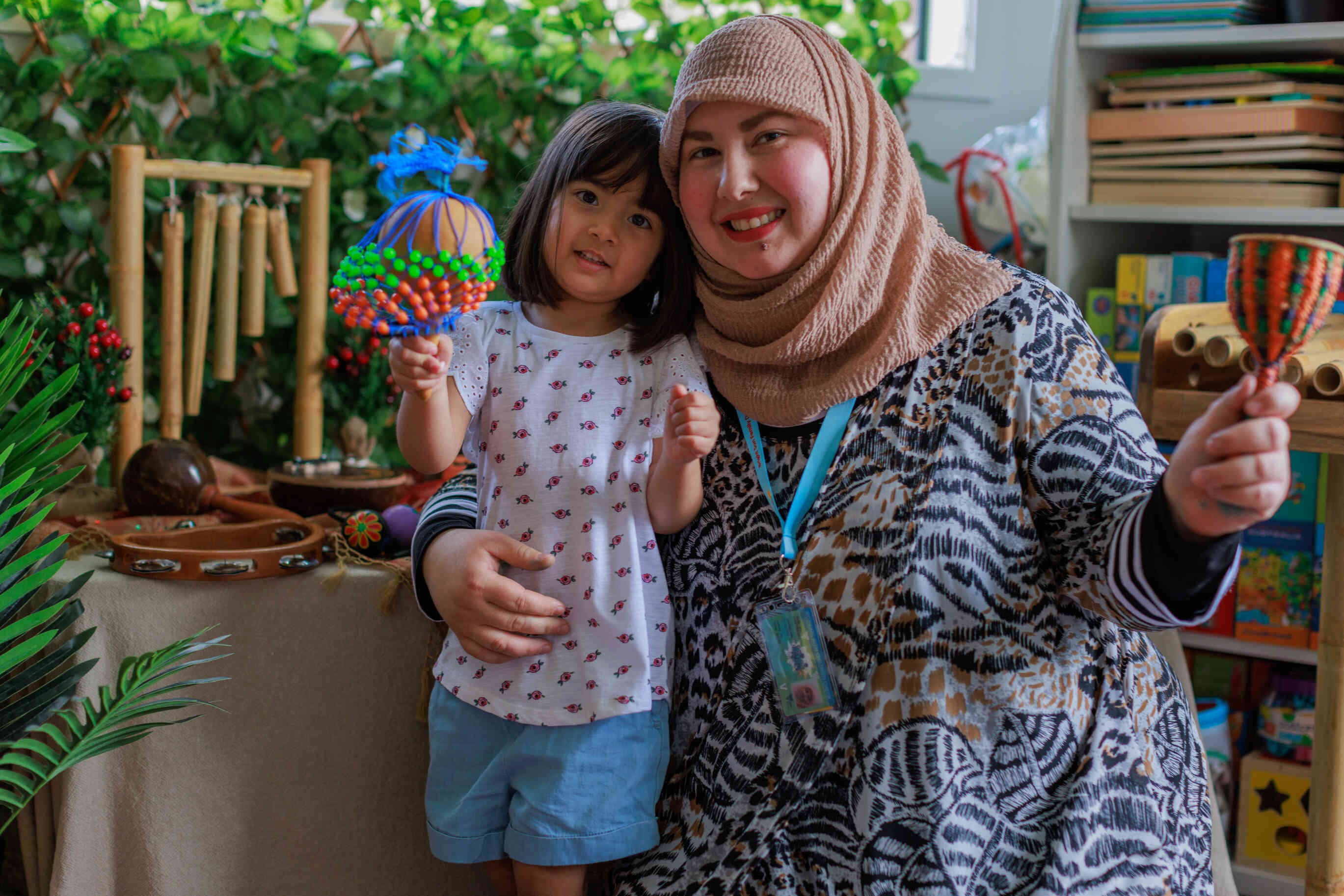
Educator Sahar Kalou at her family day care.
Bridging the gap
The relationship between Bright Sun and Be You is working.
“I’ve known my co-ordinator, Sarwat, since 2020 when I started my family day care,” says Shreya.
“We’ve developed a close bond. We speak regularly and she asks how I’m doing. I don’t have family here, so I talk to Sarwat like family. She is my family.”
Slowly, educators at Bright Sun have even begun instigating those conversations themselves. “They have started coming to us,” says Mariam. “So we feel like we’ve bridged the gap.”
It’s not just to seek support for themselves, either. Michelle Greer is Bright Sun’s Wellbeing Officer and says she’s seen a distinct trend.
““I’ve definitely noticed an increase in the number of educators who are coming to us and saying, ‘Hey you know what, we’re just a bit concerned about these behaviours in these children.’ ”
“So the talk around wellbeing and the fact that it’s become more embedded in our culture means that, as well as coming to us to say, ‘I’m stressed at the moment which means I’m not being the best educator I can be’, they’re also more tuned into the children in their care and saying, ‘I feel like this family is under stress.’ ”
The fact that Bright Sun Family Day Care is part of the Be You family is now included in the service’s induction process for new educators and they’re encouraged to explore the suite of resources from day one.
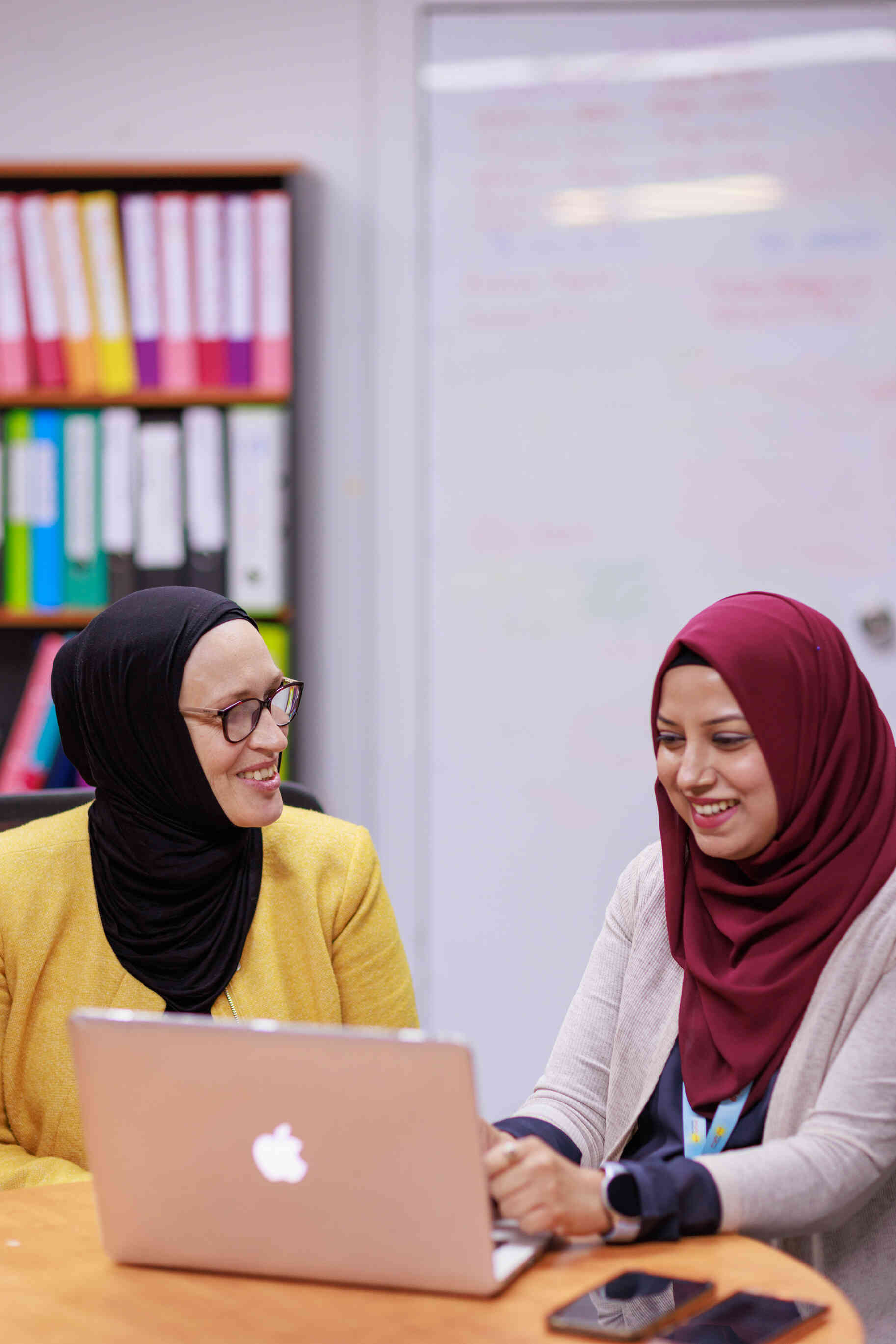
Bright Sun Wellbeing Officer Michelle Greer (left) talks with Rumaisa Fahad from the Coordination Unit.
“I give big credit to Be You, it's why we're where we are at the moment," says Amsha.
“We pick something up for every meeting, interaction or webinar we have with Be You and we implement it in a way that suits our educators. And I know we’ll continue to implement it more and more. ”
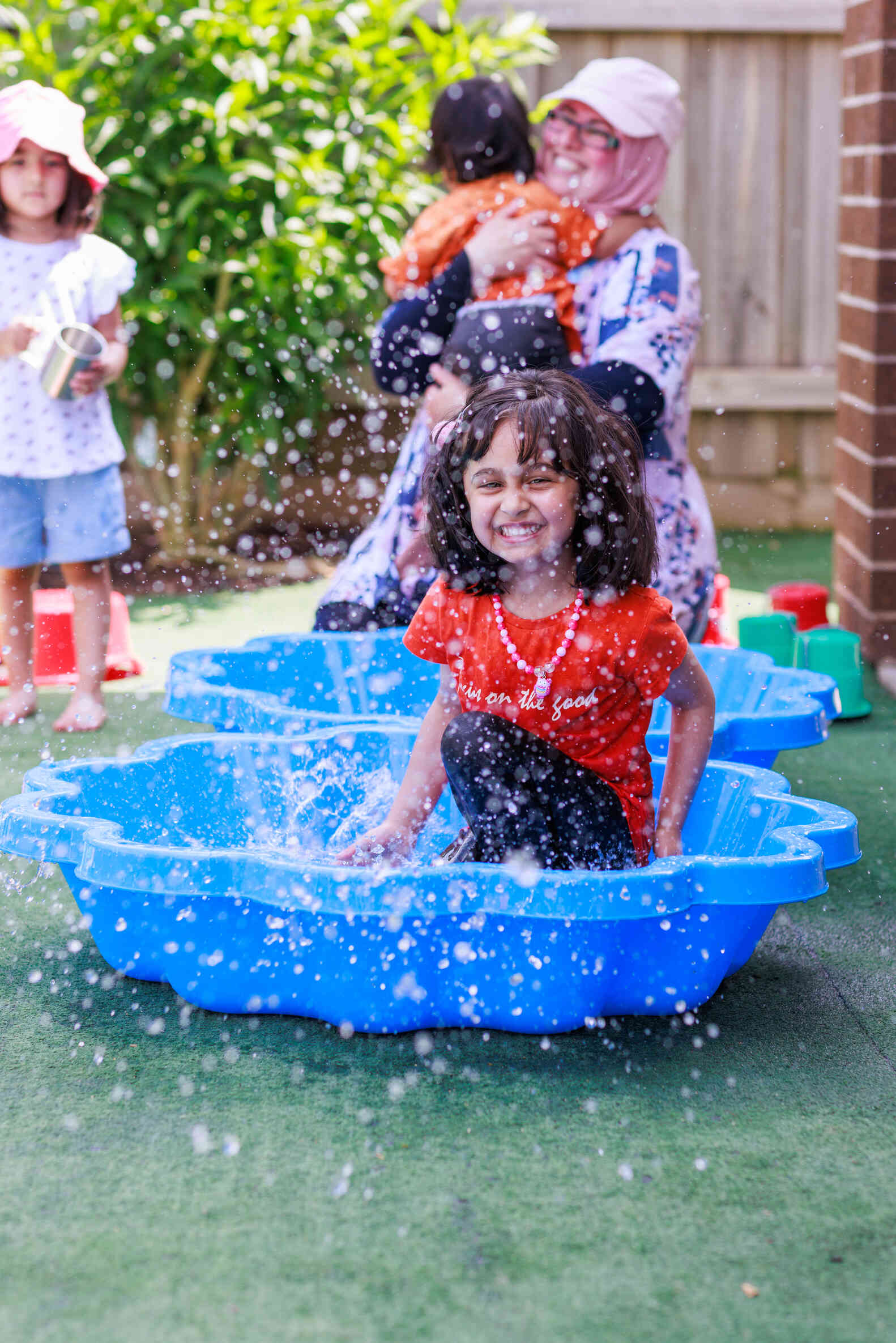
Correct at time of publication.